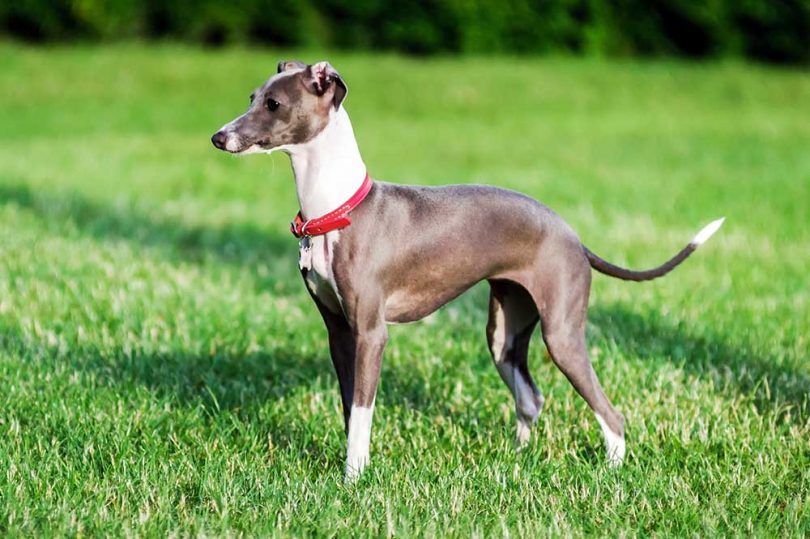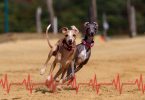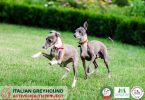There is a growing trend for moving away from the traditional veterinary approaches that have been standard practice for many years now. Owners are increasingly shunning routine vaccinations and worming routines. Feeding has become more of a science than it have ever been. This approach is often referred to as a more “holistic” approach, because it is more natural and less invasive. Follow our tips for holistic dog care to understand how a holistic approach can benefit your Italian Greyhound.
What is “Health”?
Optimum health is a good balance of physical, mental, social, and emotional wellbeing.
Health is a state of complete physical, mental, and social well-being and not merely the absence of disease or infirmity.
A resource for everyday life, not the objective of living. Health is a positive concept emphasizing social and personal resources, as well as physical capacities.
World Health Organisation ~ www.medicalnewstoday.com
What is Holistic Dog Care?
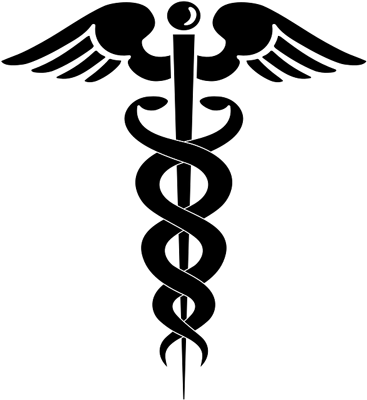
Holistic dog care means looking at the entirety of the dog’s physical, mental, and social existence when addressing any area of their care. This can mean the daily care by their owner or veterinary care.
Holistic dog care looks at the whole of the dog, it’s life, it’s history, and not just the symptoms presented. When caring for a dog, a (w)holistic approach takes into consideration genetics, nutrition, environment, behaviour, daily routine, and medical history. It is an approach that is very much regarding the dog as an individual, with respect, and with understanding of the dog’s physical, mental, and emotional needs.
holistic adjective /həˈlɪs.tɪk/
https://dictionary.cambridge.org/dictionary/english/holistic
dealing with or treating the whole of something or someone and not just a part.
Holistic care isn’t simply keeping everything as natural as possible. This might be part of an holistic approach when considering your dog’s life as a whole. Holistic dog care is much broader mindset than that.
Misunderstanding a holistic approach
An example of how a holistic approach is misinterpreted (not and Italian Greyhound and not in the UK):
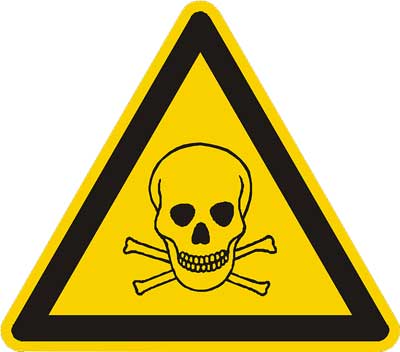
A dog owner posted online that they would not allow their dog in the back yard because a couple of years ago their partner had used weedkiller on the weeds between the paving slabs. They explained that they were following a holistic care approach with their dog, therefore would not risk exposing their dog to residual chemical in their yard.
This is not a holistic approach to dog care. A holistic approach looks at all of the dog’s needs, not just excluding chemicals and unnatural substances. The dog would benefit greatly from being loose to mooch around the back yard, sniffing, sunbathing, and enjoying some outdoor freedom, however small. It would greatly improve the dog’s overall wellbeing, as opposed to being taken out onto the pavement on a lead every time the dog needs the toilet. Clearly, we must always exercise caution when using weedkiller in areas our dogs have access to, closely following the manufacturers instructions. However, we have no control over what happens to areas our dogs are exposed to outside of our homes. It is highly likely the pavement out front is more contaminated with pollution and chemicals than weed killer in a back yard two years ago.
What is the difference between Natural Therapy and Holistic Therapy?
Holistic care does not reject scientific medicine, it works along with it. Holistic Therapy is carried out by a fully qualified Veterinarian, whereas Natural Therapy can be administered by someone who is educated and adept at administering the treatment programme. For example, you do not need to be a Veterinarian in order to be a massage therapist, a Hydrotherapist, or administer Acupuncture. Some Natural Therapies are regulated by a Government body, while others are self-regulated. A good Natural Therapist will not treat an injury or ailment without a Veterinary referral, or at least a Veterinary consultation first. Natural therapies tend to risk fewer side affects than traditional, often invasive, veterinary treatments.
Natural Therapies include (but are not limited to):
- Massage Therapy
- Bach Flower Remedies
- Hydrotherapy
- Aromatherapy
- Acupuncture/Acupressure
- Chinese Medicine
- Homeopathy
- Physiotherapy
- Vitamin Therapy
- Laser therapy
Natural Therapy is not the same as Holistic Therapy, but it plays a big part in a holistic approach to treating ailments.
Day-to-day Holistic dog care
Food
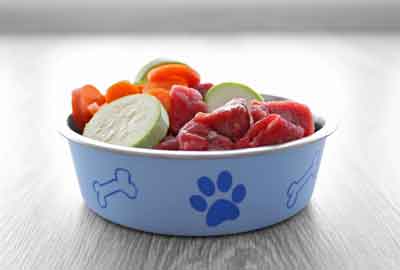
Every dogs needs a healthy, nutritious diet. Understanding the difference between food allergy and food intolerance is an important factor in a holistic approach to feeding. Intolerance upsets the digestive system, allergy activates the immune system, both detrimentally affect the wellbeing of the dog.
Food can also be used in lick-mats, stuffables (food toys like a Kong), and puzzles to help stimulate your dog, or to simply while away some time, alleviating boredom and/or stress.
Dogs can suffer a condition called Pica; a compulsive desire to eat non-food items like rocks, oil, or plastic. Pica is considered a behavioural issue, but the root can be medical. This is a good example of something that would benefit from a holistic approach, rather than accepting it as an inconvenient, unwanted behaviour.
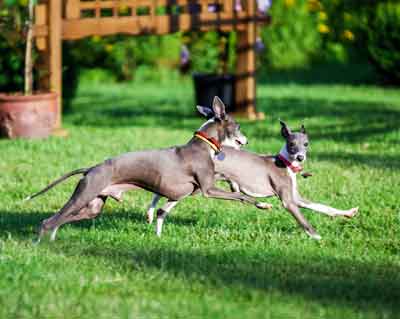
Socialisation
Socialisation is a key factor in the overall wellbeing of a dog. Generally, dogs need interaction and play with other dogs. Italian Greyhounds enjoy seeing and interacting with other Italian Greyhounds. On the whole, they are also very human orientated dogs and love meeting and interacting with people. This all has a positive effect on their overall wellbeing. However, if your dog is fearful of other dogs, strange people, or particular social situations, pushing your dog into these situations and interactions will have a detrimental affect on their overall wellbeing.
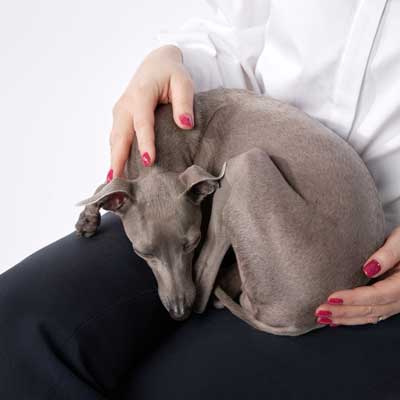
Mental Health Care
Dogs have emotional care needs, just like humans, and this is particularly true of Italian Greyhounds, as they are sensitive, human-orientated dogs. As with socialisation, if a dog is fearful in a situation, or simply enjoys physical closeness and comfort, being aware of and addressing these emotional needs is part of a holistic care approach. The imbalance created by regular stressful events will affect the dogs overall wellbeing, even if that stressful event is a lack of closeness with it’s owner.
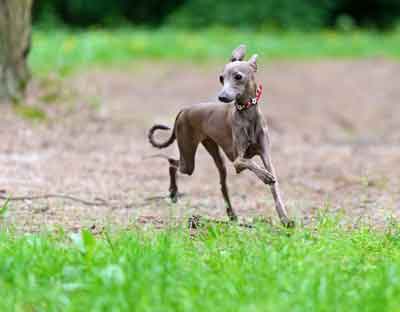
Exercise
Walking, running, playing, and training are all essential exercise that enhance a dog’s physical and mental wellbeing. Walking and running is not essential every single day, as long as it is replaced with other exercise, like playing and training with their person, particularly if your dog is reactive or fearful out on a walk. Exchanging walking with play and training every so often allows a reactive or fearful dog’s cortisol levels to drop between potentially stressful walks. This is beneficial physically, mentally, and emotionally, and aligns with a holistic care approach.
Behaviour
Unwanted behaviour is often tackled by applying an aversive method of correction, or even punishment, as a quick solution. A mindful approach will be to redirect the behaviour. A holistic approach would be to look at why the dog is exhibiting unwanted behaviour. Is a dog suddenly started toileting in the house because of a stressful factor introduced to it’s environment? For example, a new neighbour with a dog that barks in the garden for prolonged periods? Has something in your own routine or circumstances changed? Has a dog started chewing because they are stressed by a change, or their diet needs addressing, are they in pain? Is the dog not receiving the emotional support and relationship with you that it has previously? A holistic approach is to look at the entirety of the dog’s life, not just at stopping the unwanted behaviour.
Physical Health
Physical health includes assessing a dog’s weight, muscle tone, fitness levels, recovery rate etc. A dog that doesn’t receive adequate exercise will have insufficient muscle tone, which in turn leads to weakness and lack of balance. Over time, this is likely to lead to other problems, as tendons and joints pick up the strain of lack of muscle.
An overweight dog has unnecessary strain on it’s heart and joints.
An underweight dog can signal unseen health problems, if the dog is otherwise enjoying a healthy, balanced, nutritious diet.
Itchy, flaky skin is a sign of imbalance within the dog. It can be caused by environmental factors, allergy and/or diet.
Excessive licking and paw chewing also signals an imbalance within the dog; allergy and/or diet, a response to environmental issues, or a manifestation of stress due to emotional/mental imbalance. In an Italian Greyhound who has received surgery for a broken leg, excessive licking of the can be the first sign of plate rejection or a raised screw in the repair.

Veterinary care
A holistic care approach does not shun traditional medicine and Veterinary care, it works with it. It also does not require dog owners to simply avoid administering vaccinations, worming, and flea and tick treatments. This would be part of a natural approach, not necessarily a holistic approach. Titer testing before renewing vaccinations is an option when taking a holistic approach. Titer testing has shown immunity from an original vaccination to last as long as 5 years, so annual vaccinations would be placing unnecessary strain on the dog’s system. This is is a holistic approach to dog care, as it takes into consideration both the positive and negative affects of the vaccination. You can speak to your Vet about the option of Titer Testing.
A holistic veterinary approach is one of looking at the dog as a whole, not focussing on the symptom/ailment alone, then using traditional veterinary treatment if it can be administered with little or no side affect. Otherwise, a holistic Veterinarian will use more natural treatment that is less invasive and/or carries no side affect.
Holistic dog care is a choice for any dog owner. Whether all or just some aspects of a dog’s care is a holistic approach, each person has to decide what is right for their dog/s, even in specific circumstances.
The content provided in this article is for advisory purposes only. It is the responsibility of the individual to ensure that the information they are working to is correct and appropriate for their specific circumstances.
© Kelly Wallace Horne, The Italian Greyhound Club, Italian Greyhound Active Health Project 2023. Unauthorised use and/or duplication of this material without express and written permission from this site’s author and/or owner is strictly prohibited. Excerpts and links may be used, provided that full and clear credit is given to Kelly Wallace Horne, The Italian Greyhound Club, and www.italiangreyhoundactivehealth.org.uk with appropriate and specific direction to the original content.


